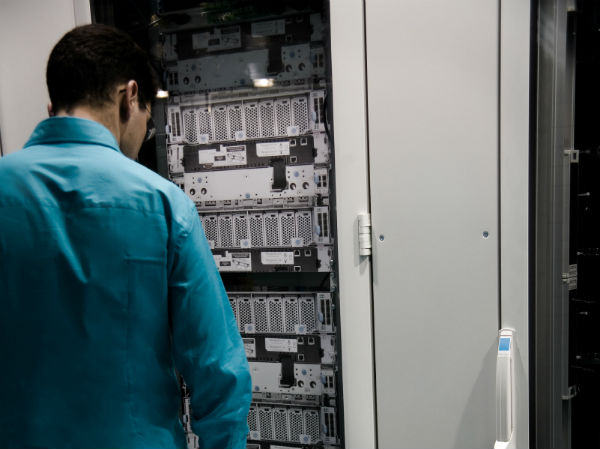Has Server Administration Become Redundant in a Cloud Environment?

Is a server administrator really required in these days of Iaas? This is an important question to answer when considering cloud based infrastructure. Let’s assume that an online business requires a single dedicated server. The operations are stable and they do not foresee any surge in traffic. Initially, they would require a server administrator who would install the operating system, database, anti-virus, application software, tools and other scripts which are essential for running a server. This is obviously not a job for a novice. In addition to the technical work, the server administrator has to coordinate with the data center people.
Managing Multiple Servers
The situation is a lot more complicated when you envision a multiple server environment. In the case of traditional server setup, there is a need for load balancing. This can be taken care of through the data center or the system administrator can install his own version of load balancing software. But again it has to be determined what kind of server configuration would be required. If there are many computations involved, you can opt for higher processor speed. In the case of multiple transactions, higher RAM would be required. This job obviously cannot be handled by anyone other than an experienced server administrator.
Maintenance and Monitoring of Servers
There is a need to maintain and monitor servers 24×7. Some think that once a server is setup, it doesn’t need any maintenance. This is a grave error on the part of business managers. The online environment can be higher erratic and can cause servers to go down quickly. You need to monitor your servers all the time.
Maintenance means applying patches, upgrades and additional software when required. This is an ongoing process, which is unavoidable.
Cloud-Based Infrastructure
Let’s look at cloud services from the standpoint of server administrator requirements. The operating system is pre-installed. There is no need to upgrade and maintain servers as far as the operating system is concerned. One would assume that you don’t need a system admin now that you have someone else doing the job for you. This would be a simplistic approach. I have been examining various cloud service providers and I invariably observe that the technical issues are way beyond a layman. For example, how do you decide which kind of instance you require? Do you need a fast processor or more RAM. Who will decide for you? I’m talking about the basics here. When you come to load balancing and failover, you get into technical matters which can be appreciated only by a server administrator.
Conclusion
A server administrator is perhaps unavoidable in any environment. For a single server or a simple, stable multi-server environment, I would recommend that a business opt for a consultant who will initially set up the cloud instances and provide guidelines for future operations, or in GMO Cloud’s case, subscribe to additional set-up services. You can always hire a junior server administrator working full time for you. This will reduce your operational costs. In any case, a technical hand is required when operating hardware in any environment.
Be Part of Our Cloud Conversation
Our articles are written to provide you with tools and information to meet your IT and cloud solution needs. Join us on Facebook and Twitter.
About the Guest Author:
 Sankarambadi Srinivasan, ‘Srini’, is a maverick writer, technopreneur, geek and online marketing enthusiast rolled into one. He began his career as a Naval weapon specialist. Later, he sold his maiden venture and became head of an offshore Database administration company in Mumbai. He moved on as Chief Technology Officer of one of the largest online entities, where he led consolidation of 300 online servers and introduced several Web 2.0 initiatives. He holds a Master’s degree in Electronics and Telecommunication.
Sankarambadi Srinivasan, ‘Srini’, is a maverick writer, technopreneur, geek and online marketing enthusiast rolled into one. He began his career as a Naval weapon specialist. Later, he sold his maiden venture and became head of an offshore Database administration company in Mumbai. He moved on as Chief Technology Officer of one of the largest online entities, where he led consolidation of 300 online servers and introduced several Web 2.0 initiatives. He holds a Master’s degree in Electronics and Telecommunication.


